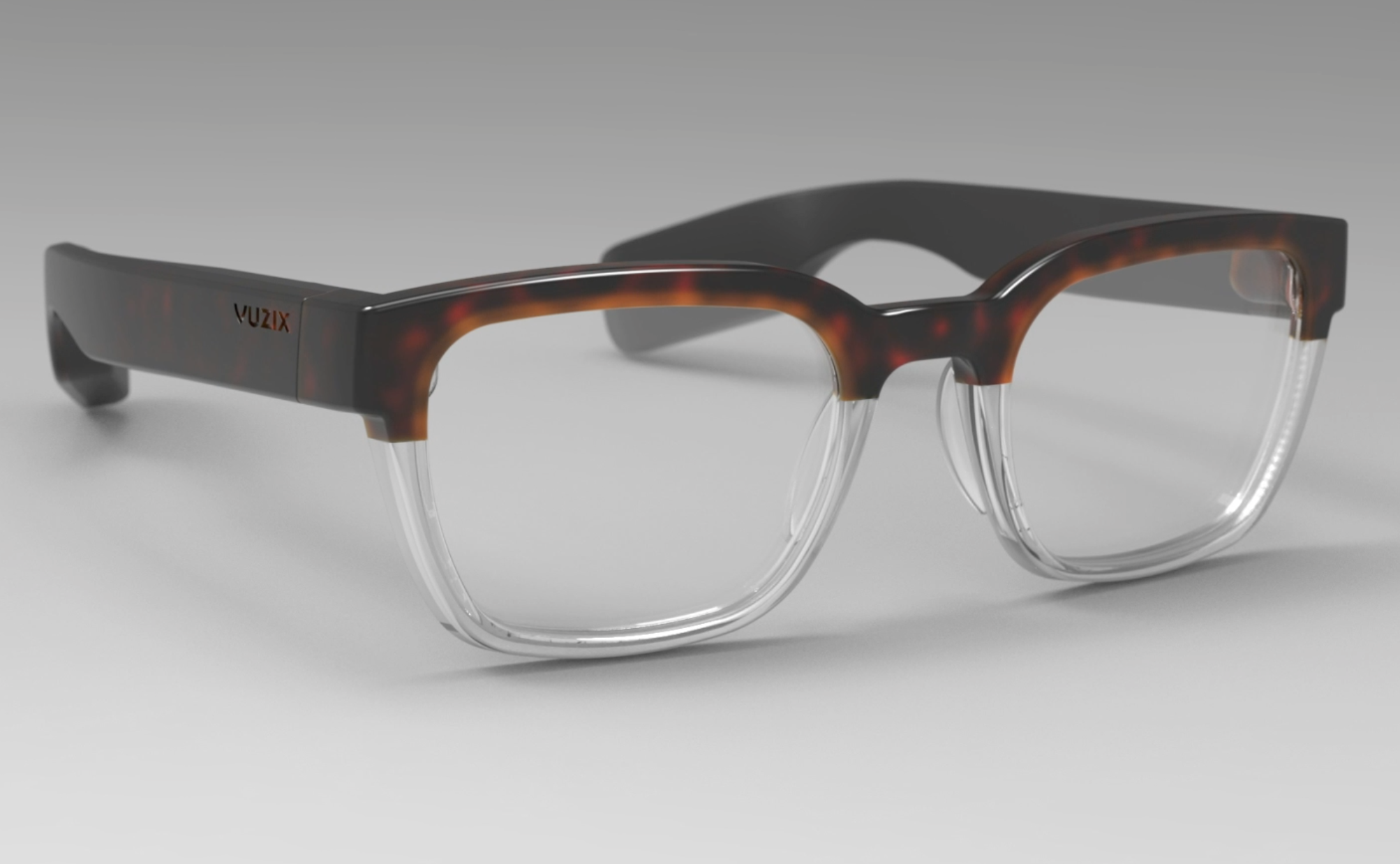Not just for television: MicroLED is here to fix smart glasses too
MicroLED is being heralded as the next big thing in television display technology. A non-organic alternative to OLED that is claimed to be longer-lasting – and backed by Samsung with its The Wall concept – microLED displays emit their own light and require no LED backlighting, making them more compact.
Now, Vuzix has fitted microLED technology to its latest pair of smart glasses. Shown off at the online CES technology show this week, the unnamed glasses are the result of a new partnership with Chinese firm Jade Bird Display that will see the production of tiny display projectors.
Read More:
- JBuds Frames are Bluetooth speakers that attach to your glasses
- Amazon's updated Echo Frames glasses with Alexa are now available to everyone
- Apple augmented reality smart glasses: The story so far
These projectors, which can operate in monochrome or full color and adjust their resolution based on software demands, are claimed by Vuzix to be "the world's smallest microLED display engines when commercially released".
The technology used here is so compact thet Vuzix says the microLED panel, backplane and coupling projector combined take up less cubic space than the eraser on the end of a pencil. This helps give the wearable a look that is very similar to regular glasses. The projectors fit neatly into the frame at the top corners of the lenses.
Jade Bird Display says the projectors have a resolution range of 400 to 10,000 dots per inch, with high brightness making them viewable outdoors, where other smart glasses have struggled.
We are pleased to see the technology on display here has come a long way since the days of Google Glass, and even from Vuzix's own smart glasses, which have been sold to the enterprise sector since early 2019. We expect the company to stick to that business model with the new model, instead of attempting to make smart glasses a hit with consumers reluctant to wear tech devices on their face.
Due to the online-only nature of CES this year, we haven't been able to try out the glasses for ourselves. But if the demonstration video by Vuzix is anything to go by, we could be looking at an impressive wearable for bringing a subtle head-up display experience to the workplace.
As well as the smart new microLED projectors, the glasses have support for Wi-Fi and LTE connectivity, plus stereo speakers and noise-cancelling microphones. The new glasses from Vuzix do not yet have a price or release date, but the company's current model launched with a retail price of $999.
Smart glasses have proven to be a hard nut for the global technology industry to crack. The deep pockets of Google failed to get Glass off the ground (at least as a consumer product) and reports of Apple, Facebook and others working on smart glasses with augmented reality functions have lingered for years. Facebook is currently working with Ray-Ban, and Apple is believed to be launching its first AR product as early as this year. We will be interested to see if either use microLED technology too.
